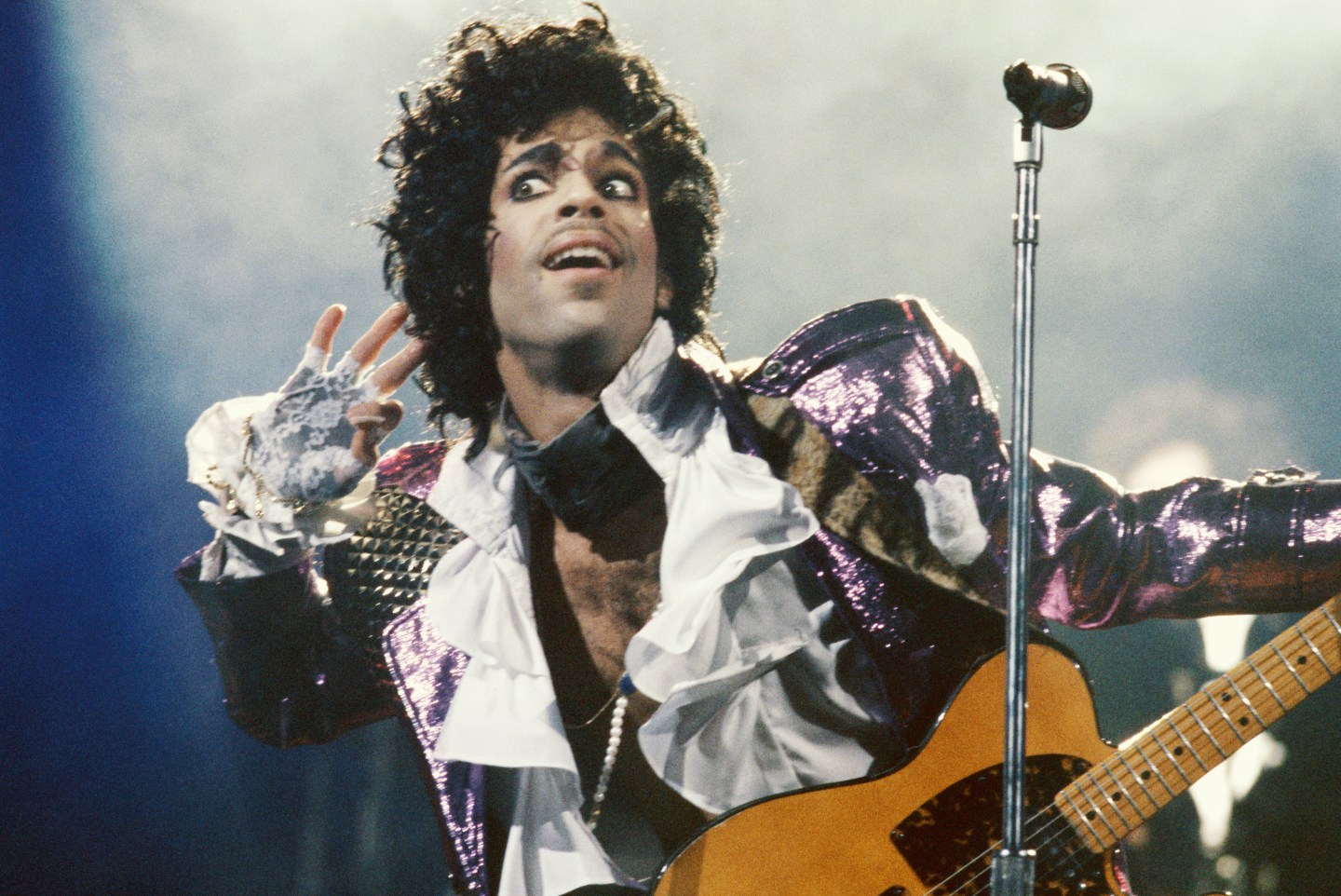Prince, the pioneering rock and pop musician who passed away suddenly at his Minneapolis home on Thursday afternoon, had a complicated relationship with the web. He was one of the first to sell an album online, but in the years before his death he spent his time taking as much of his music off the Internet as he possibly could.
Last year, for example, Prince directed his representatives to remove his songs and albums from every streaming music service and online radio provider, including Spotify, Rdio, and the European service Deezer. The only one that retained the ability to stream his repertoire was Tidal, the musician-owned service launched in 2015 by rap artist Jay Z (Prince’s music also remains on iTunes).
"Essentially, streaming has offered labels the ability to pay themselves twice while reducing what is owed to artists…
— Prince (@prnlegacy) June 25, 2015
The previous year, in November of 2014, Prince removed all of his music from YouTube. He didn’t say much about his reasons for doing so at the time, but in a series of tweets earlier this year (which he later removed) Prince complained about the licensing rates that the Google subsidiary paid to artists for the right to distribute their work.
Sign up for Data Sheet, Fortune‘s technology newsletter.
The Minneapolis-born musician also helped spark one of the most contentious copyright lawsuits in recent history, when he and Universal Music forced YouTube to take down a 29-second clip of a baby dancing with the song “Let’s Go Crazy” playing in the background. The Electronic Frontier Foundation sued to have the video declared to be fair use, and eventually won the case last year.
Not gonna lie I kind of need everything to stop right now so I can watch Prince performances on the Internet. Which, ironically, he'd hate.
— Molly Wood (@mollywood) April 21, 2016
Prince also launched a $22-million lawsuit in 2014 against bloggers who posted links to unauthorized recordings of his concerts, but later dropped the suit after the clips were removed.
Despite all of these actions, however, Prince was one of the earliest adopters of digital technology and the Internet. In 2001, he created a subscription-based online club called NPGMusicClub and released exclusive tracks and special-access concert tickets to members—much like his fellow pop-music pioneer David Bowie did with the BowieNet Internet access service he launched in 1998.
It’s why so many misunderstood Prince’s relationship to the Internet, or to the music industry. He always, always optimized for _control_.
— anildash.com (@anildash) April 21, 2016
As Prince fan and online-media veteran Anil Dash noted on Twitter, the approach that Prince had to the Internet wasn’t about love or hate, it was about control. The pop artist spent much of his life wrestling with record labels over control of his music—which led to the famous name change in which he became known as a symbol—and he resented the fact that the labels were the ones who made the most money from streaming, not the artists who created the music.
Pop superstar Prince has died
In 2010, Prince refused to give his new album to any digital music providers, and told The Mirror in Britain: “The Internet’s completely over. I don’t see why I should give my new music to iTunes or anyone else. They won’t pay me an advance for it, and then they get angry when they can’t get it.”
In an interview with The Guardian last year, Prince said of his comments from 2010: ““What I meant was that the internet was over for anyone who wants to get paid, and I was right about that. Tell me a musician who’s got rich off digital sales. Apple’s doing pretty good though, right?”
In many ways, the fight that Prince started against the record labels and the streaming services that do business with them has been picked up by Taylor Swift, who famously removed her album from Spotify in 2014 and withheld music from Apple Music as well. And so the battle over control and who ultimately gets paid for music continues.











